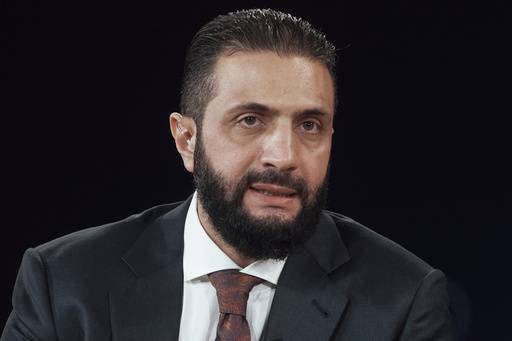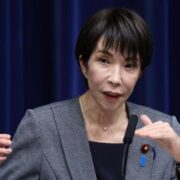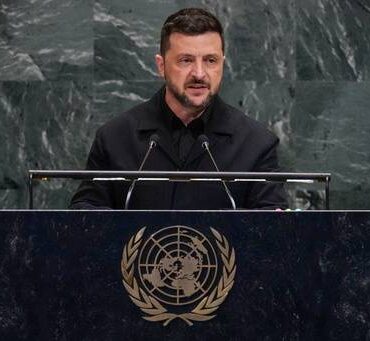A Syrian leader addresses UN after nearly 60 years

UNITED NATIONS—Turning the page on decades of distance, Syria’s president addressed the UN General Assembly on Wednesday, marking the first time any president from his country has done so in almost 60 years. As he spoke, hundreds of people gathered in front of giant screens in Syrian cities and towns to witness the speech while waving the country’s flags.
After six decades of dictatorship that killed 1 million people and tortured hundreds of thousands, “Syria is reclaiming its rightful place among the nations of the world,” Ahmad al-Sharaa told the international community.
Al-Sharaa became the first Syrian head of state to speak at the United Nations since Noureddine Atassi gave a speech in 1967 shortly after the Arab-Israeli war, during which Damascus lost control of the Golan Heights. Israel annexed it in 1981.
Threats from Israel
Since the Assad family came to power in Syria in 1970 in a bloodless coup that overthrew Attasi, relations with the United States have been mostly cold, as Damascus was an ally of the former Soviet Union. Over the past decades, Syrian foreign ministers represented the country at the UN General Assembly.
The Assad family dynasty’s autocratic, repressive 54-year rule abruptly collapsed in December, when then President Bashar Assad was ousted in a lightning insurgent offensive led by al-Sharaa. Assad’s fall marked a major shift in the 14-year civil war.
Al-Sharaa blasted Israel in his speech, saying that it did not stop its threats to his country since Assad’s fall and adding that its policies “contradict with the international community’s support to Syria and its people” and endanger the region.
No breakthrough yet
Negotiations have been ongoing for a security deal that al-Sharaa has said he hopes will bring about a withdrawal of Israeli forces and return to a 1974 disengagement agreement. While al-Sharaa said last week that a deal could be reached in a matter of days, Israeli Prime Minister Benjamin Netanyahu on Sunday appeared to downplay the odds of a breakthrough.
Later Wednesday, Netanyahu’s office said in a statement that negotiations are underway, adding that their conclusion “involves ensuring Israel’s interests, which include, among other things, the demilitarization of southwestern Syria and maintaining the safety and security” of the Druze religious minority in the country.
Since assuming power, al-Sharaa has preached coexistence and sought to reassure Syria’s minority communities, but the country has been threatened by outbreaks of sectarian violence that left hundreds dead earlier this year. Gunmen affiliated with the new government were also accused of atrocities against civilians from the Druze and Alawite religious minorities in southern Syria’s Sweida province and the coastal region.
Fact-finding mission
Al-Sharaa said in his speech that the Syrian state has worked on forming fact-finding missions and gave the United Nations the right to investigate the killings.
“I promise to bring anyone whose hands are tainted with the blood of Syrian people to justice,” he added.
Al-Sharaa said Syria’s new authorities have destroyed the drug business that Assad used to fund his government as it was under harsh Western sanctions that, along with the war, paralyzed the economy. Assad’s fall revealed industrial-scale manufacturing facilities of the amphetamine-like stimulant Captagon, also known as fenethylline, which experts say fed a $10 billion annual global trade in the highly addictive drug.

















